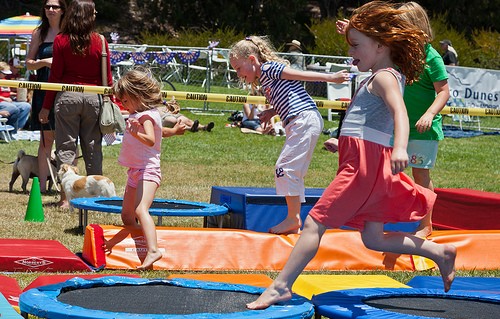
What Every Parent Needs To Know About ADHD
Attention deficit hyperactivity disorder, better known as ADHD, is not just bad behavior. In the new Diagnostic and Statistical Manual 5, ADHD is defined as a "minimal brain dysfunction." There's something going on your kid's brain that makes him or her act out in the ways ADHD kids often drive their parents (and siblings and teachers and playmates) just about crazy. ADHD symptoms usually start before the age of 7, and can continue into adulthood. Fighting, backtalk, rudeness, and spaciness are common parent and teacher complaints. But there is a combination of hyperactivity and inattention in actual cases of ADHD.
- Important notification about information and brand names used in this slideshow!
- Photo courtesy of Mike Baird by Flickr : www.flickr.com/photos/mikebaird/5902685361/
- www.helpguide.org/mental/adhd_add_parenting_strategies.htm
- http://www.onhealth.com/tips_for_parenting_a_child_with_adhd/article.htm
- http://www.psychologytoday.com/blog/the-gift-adhd/201012/top-ten-tips-parenting-adhd-kids
- http://psychcentral.com/lib/parenting-kids-with-adhd-16-tips-to-tackle-common-challenges/0006557
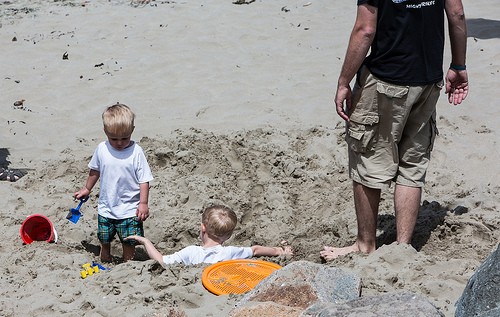
How ADHD Affects The Whole Family
First the good news, children who have ADHD tend to "get over it" as they reach adulthood, although symptoms may persist through their 20's and 30's. However, in the meantime, ADHD kids are more likely to get into drugs. They are less likely to do well in school or their first jobs. Or their second jobs. They tend to have comorbid conditions such as oppositional defiant disorder (you don't need a definition for that, do you?), Tourette's syndrome, and bipolar disorder. They tend to get in trouble with teachers, principals, law enforcement officers, bosses, and parents. But ADHD is treatable.
- Important notification about information and brand names used in this slideshow!
- Photo courtesy of Mike Baird by Flickr : www.flickr.com/photos/mikebaird/8687567878/
- Klein RG, Mannuzza S, Olazagasti MA, et al. Clinical and Functional Outcome of Childhood Attention-Deficit/Hyperactivity Disorder 33 Years Later. Arch Gen Psychiatry. Oct 15 2012.1-9.
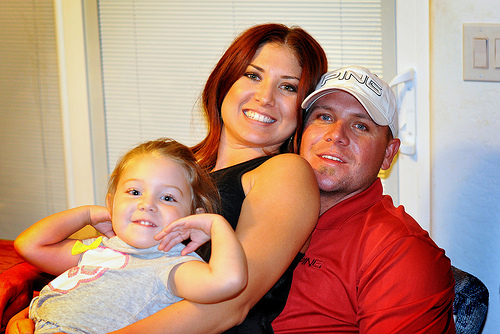
Rule #1: Stay Positive
Parenting a child who has attention deficit hyperactivity disorder can try your patience, but you have to be patient. It really doesn't help you deal with a kid who has some aspects of an oppositional defiant disorder by giving the child rules to oppose and defy. What parents of ADHD children must avoid is getting into cycles of defiance and punishment. Punishment, in ADHD, simply doesn't work. Consequences, on the other hand, do work, but they must be rational and consistently applied. It is no shame for the parents of children who have ADHD to seek help with their own emotional burdens. If you're angry with your kid, even when you have a right to be, you won't have the presence of mind to stay in control of the situation.
- Important notification about information and brand names used in this slideshow!
- Photo courtesy of Melia Shumaker by Flickr : www.flickr.com/photos/azjade/8064379143/
- Brestan EV, Eyberg SM. Effective psychosocial treatments of conduct-disordered children and adolescents: 29 years, 82 studies, and 5,272 kids. J Clin Child Psychol. Jun 1998. 27(2):180-9.
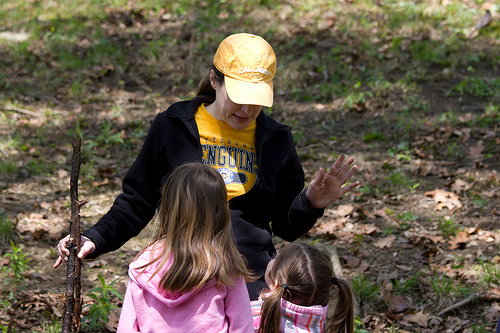
Help Your Child Stay Organized
Every child who has ADHD tends to forget things. They may forget their homework. Parents need to ask. Don't interrogate your kid, but set up lines of communication with teachers so you will know what your child's classes require. Children who have ADHD forget brushing their teeth, combing their hair, and flushing the commode. Encourage routines for daily personal management that make it easy to remember basic life skills. If your child has a problem with fighting, find opportunites for play and interaction in which fighting is less likely. That doesn't mean you look for the wimpy kid for your kid to hang out with, but instead encourage participation in fast-moving activities that require just as much attention as your child can give, but not more.
- Important notification about information and brand names used in this slideshow!
- Photo courtesy of Brad Knabel by Flickr : www.flickr.com/photos/bknabel/5673520124/
- Ramchandani P, Joughin C, Zwi M. Attention deficit hyperactivity disorder in children. Clin Evid. Jun 2002. 262-71.
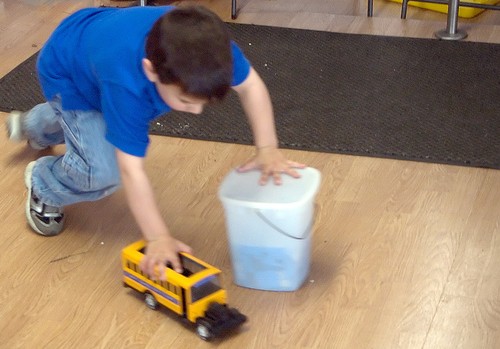
Keep Kids Busy
In another century parents would quote proverbs like "An idle mind is the devil's workshop." In the twenty-first century, parents know that life with ADHD kids who don't have enough to do can be hell. On days kids aren't in school, stress structure. Know what you would like your kids to be doing throughout the day. When you hear "I'm bored," don't hesitate to let your child join you in work around the house, within their safety needs. ("Here, honey, help Daddy with his table saw" usually isn't a good idea.) Make lists of things you kid can do. Set a bedtime and see to it that your child isn't roaming around the house at night. Consider enrolling your child in camp or classes when you can't schedule more activities at home.
- Important notification about information and brand names used in this slideshow!
- Photo courtesy of David Goehring by Flickr : www.flickr.com/photos/carbonnyc/144283862/
- You may also be interested in this feature on WebMD on summer activities for children who have ADHD: www.webmd.com/add-adhd/childhood-adhd/features/adhd-summer-survival-tips?page=2.
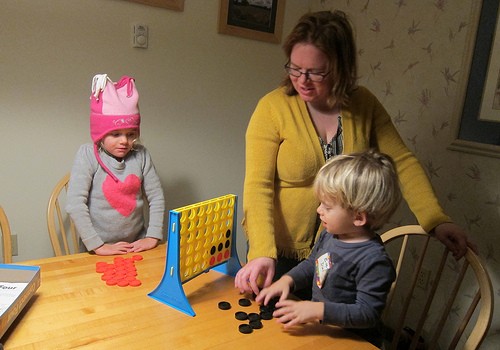
Provide Consistent Rules
One of the key tools for helping kids with ADHD develop skills for later success in life is reinforcement. This means when they follow the rules, they earn privleges. The rules have to be clear and consistent, or there isn't any real learning that benefits both child and parent. It's OK, and even helpful, to make the bigger rewards something that comes as a surprise. The element of surprise in gifts and treats that go beyond the ordinary "gets your child's attention," so that they tend to be behaving well all the time because they never really know when they are in for a real treat.
- Important notification about information and brand names used in this slideshow!
- Photo courtesy of Joe Shlabotnik by Flickr : www.flickr.com/photos/joeshlabotnik/8410649086/
- Rutledge KJ, van den Bos W, McClure SM, Schweitzer JB. Training cognition in ADHD: current findings, borrowed concepts, and future directions. Neurotherapeutics. 2012 Jul. 9(3):542-58. doi: 10.1007/s13311-012-0134-9. Review. PMID: 22911054.
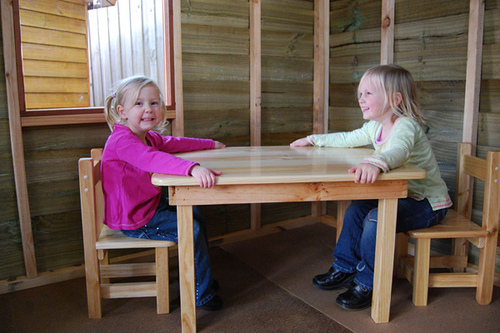
Set Up Reasonable Consequence For Breaking The Rules
Kids with ADHD need to know that they are loved, but they also need to know that life comes with basic rules. But because figuring out ways to follow the rules can be confusing, it's best not to add "punishment" to the mix. Instead of meting out punishments, ensure clear consequences. Don't get into a cycle of ignoring, nagging, yelling, and punishing. Let your children know you are paying attention to their behavior. Make consequences clear and immediate. If children are quarreling over a toy, set it aside for a time out as soon as the quarreling starts. If your teenager comes to the table with obviously dirty hands, take the plate of food away immediately and have them go wash. But restore normalcy just as quickly as you get compliance.
- Important notification about information and brand names used in this slideshow!
- Photo courtesy of Matt's Homes by Flickr : www.flickr.com/photos/77278206@N02/7127702109/
- You may also be interested in http://www.wikihow.com/Discipline-a-Child-With-ADHD.
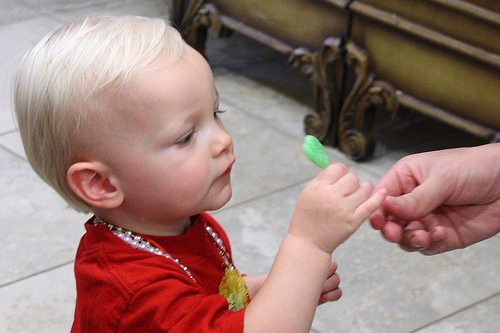
Reward Good Behavior
Part of helping ADHD children and teens develop the skills that will help them succeed in life is setting up clear boundaries. There aren't punishments, but there are consequences. Children don't necessarily merit special rewards for doing the right thing. The reward for washing your hands after you use the bathroom is not coming down with E. coli infections, after all. But when ADHD children go abofve and beyond the rules in doing things right, pay attention to them. Acknowledge unusually good behavior. But don't pay your children bribes for it. If there are natural rewards for doing the right thing, however, make sure your children receive them. Part of what any kid who has ADHD really wants is acknowledgment. Other kinds of payoffs are secondary.
- Important notification about information and brand names used in this slideshow!
- Photo courtesy of Liz Brooks by Flickr : www.flickr.com/photos/lizbrooks/4084322214/
- You may also want to see ehow, How to Discipline a Child Who Has ADHD.
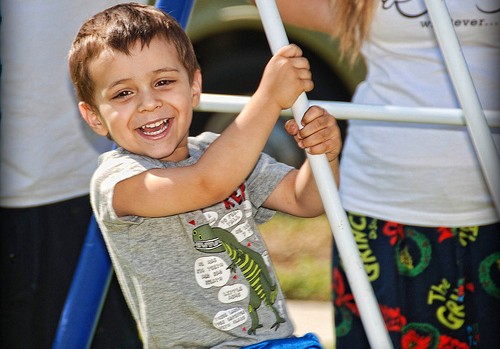
Excercise, Healthy Food, And Enough Sleep Are Essential
When worry, anxiety, and intrusive thoughts (things your child just can't stop thinking about) are a problem, the solution may be exercise. Any kind of physical exercise to the point of becoming physically tired can reduce anxiety--although competitve sports usually aren't best option. Many parents of ADHD kids swear by diets that are free of sugar, food dyes, and preservatives. The scientific evidence for this approach is lacking, but if it works, it works. It is also important to make sure children and teens who have ADHD get enough sleep. They'll have more brain power to be attentive the next morning, and so will you.
- Important notification about information and brand names used in this slideshow!
- Photo courtesy of Chris Yarzab by Flickr : www.flickr.com/photos/chrisyarzab/5117153322/
- Abramovitch A, Goldzweig G, Schweiger A. Correlates of Physical Activity with Intrusive Thoughts, Worry and Impulsivity in Adults with Attention Deficit/Hyperactivity Disorder: A Cross-sectional Pilot Study. Isr J Psychiatry Relat Sci. 2013. 50(1):47-53.
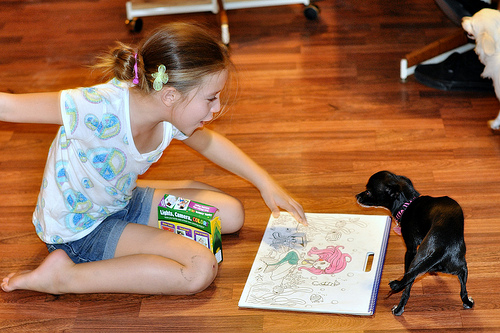
Therapeutic Benefits Of Pets
Many children and teens who have ADHD thrive when they get pets. Dogs and cats can pay attention when humans are too busy, and taking care of pets of all kinds can help ADHD kids develop habits of responsibility and attention that carry over into other life activities. It's true that pets expose children to bacteria and fungi they might not otherwise encounter, but a systematic study of children and pets found that germs from pets don't have any relationship to psychological development. On the other hand, having a pet in the household can help "train" the child's immune system to be less reactive to substances that cause allergies--a definite plus in ADHD.
- Important notification about information and brand names used in this slideshow!
- Photo courtesy of Melia Shumaker by Flickr : www.flickr.com/photos/azjade/8064379112/
- Casas L, Torrent M, Zock JP, Doekes G, Forns J, Guxens M, Täubel M, Heinrich J, Sunyer J. Early life exposures to home dampness, pet ownership and farm animal contact and neuropsychological development in 4 year old children: A prospective birth cohort study. Int J Hyg Environ Health. 2013 Jan 26. doi:pii: S1438-4639(12)00149-6. 10.1016/j.ijheh.2012.12.013.






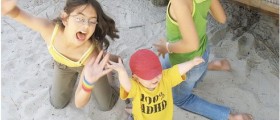



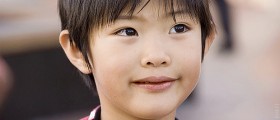

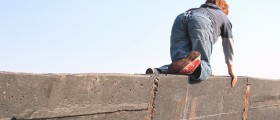

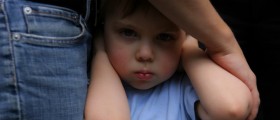




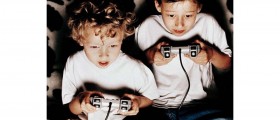
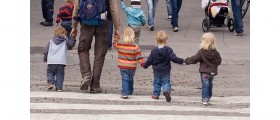




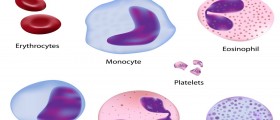
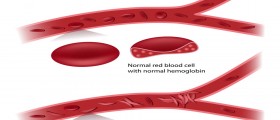
Your thoughts on this
Loading...